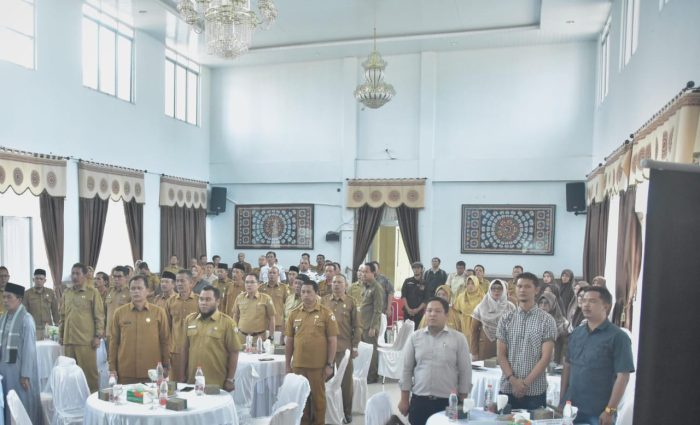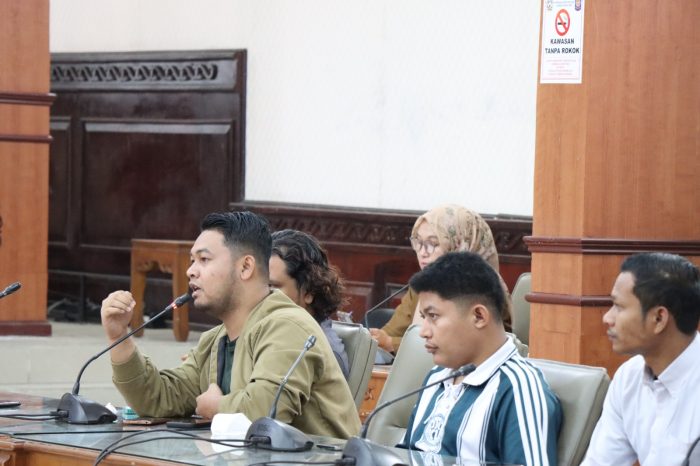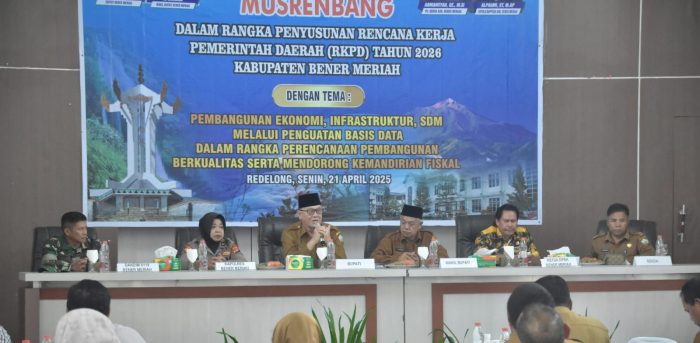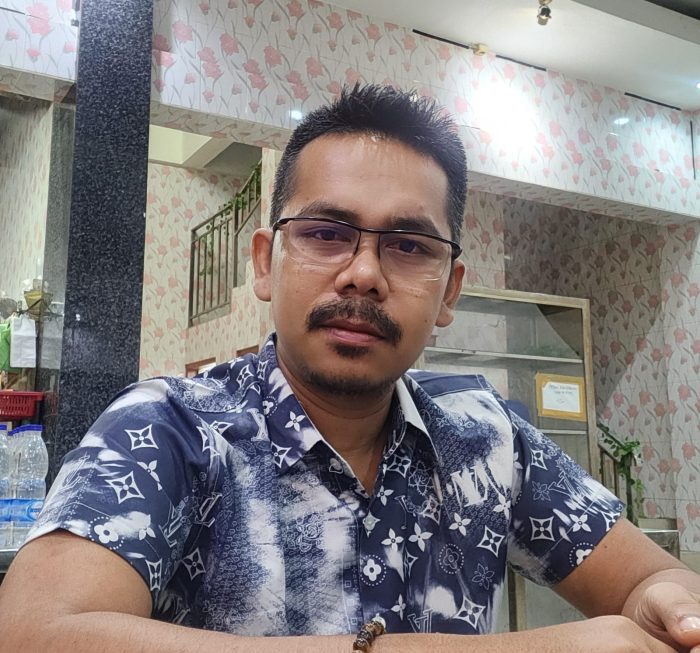Yusra Habib Abdul Gani
—–
Director Institute for Ethnics Civilization Research (INECERES). CVR/SE. 31679370. Kjærslund 15 St .V, 8260 Viby J, Denmark. Corresponding author: Email: inecires@aol.com; Yusrahabib21@hotmail.com
Abstract. Among the values of Aceh civilization that needs to be exemplary and inherited are: unifier, friendly attitude, professional, ethics and dialogue. Recognized that the civilization of Aceh in the past, a lot of things that contain the positive and negative values. However, today, the positive values of civilization that we discussed scientifically. If necessary, soul and spirit are transferred or adopted into the social-political life of Aceh today. Therefore, many people do not know the values of history, which still has not been revealed. For a while, do not remember the negative values in the history of Aceh. Perhaps in the future, we need to discuss things that are negative in particular. Although it was less fair and honest –because let negative things– but, it’s better for us to talk about good things and we take only fragments of the history of Aceh, which is useful. That’s why: I’m happy to use-the word “rebuilding”.
Key words: Aceh, civilization and history
Introduction.
After identification and inventory, we found that: Aceh, at least have 10 basic guidelines as a basis and reference for building a civilization. It is impossible to discuss all of them in this limited forum. Therefore we confine it on: unifier, professionalism, ethical and dialogue.
With this restriction, it would be easier for us to discuss in detail, and to offer the best solution for the internal conflict in Aceh, from the standpoint of history, morals and ethics. I purposely chose these four points, because It was relevant in the context of contemporary politics is going on in Aceh.
Most Acehnese people forget that, they are actually under way to follow in the footsteps of his predecessors. They think that their presence in Aceh society, regardless of historical ties. Apparently, the historical facts relating to ethics and morals, especially when dealing with opponents and social relations in society; there is an emotional connection, from one generation to the next generation. For example: Aceh’s education system in ancient times, the superiority, not only recognized by Muslim communities in the Malay World, but also recognized by non-Muslim community, even they want to emulate.
We know now, because The New York Times review it in an editorial column, on May 15, 1873. We just know now that, from 6.643 University around the world, none of the University in Aceh, both public and private, were entered into the ranking list; because the information was published in webomitrics.info.com about “Web Ranking of World Universities, USA, UK, Canadian, Australian and others, July 2011. This fact may be refuted in Aceh, which considers the news paper or web. has no scientific standards.
Similarly Aceh border. Until now, many people do not know. We will not find in a scholarly book, written by experts in history though, unless found in special reports, such as those drawn up by Britain and France. Now we understand, what the background of the war in Aceh against the Dutch, because the newspaper: the London Times 1873, 1874, New York Times 1873, 1874, Basyirat Turkey 1873, 1874 ; Franzer’s Magazine 1873 review in detail.
Now we understand that, before the war erupted between Aceh and the Dutch in 1873; ongoing dialogue between Aceh negotiators with the commander of the Dutch war, on a Dutch warship. After reading the telegram –letter secret– from the Sultan of Aceh to the government of the United States, we know now that, United State of America is a close friend of Aceh, when war erupted between the Aceh against the Dutch. The contents of the letter was not found in scientific books, but written in the New York Times in 1873 and 1903. The story above proves that, Aceh had a high civilization. Our task is now to analyze, interpret and connect the facts of history in a contextual sense, not textual. Let us discuss and we test the truth of references presented, mutual respect and complement.
Methodology (provide short methodology)
To write this paper, I use the method of literature, compiled from several sources, such as: scientific papers (books), newspaper, special reports and limited, especially regarding map -territory of Aceh- compiled by the British and French intelligence agencies. In addition, I use a correlation approach, which try to connect the chain of past history with the politics of contemporary Aceh. I also use the analysis and interpretation of all the facts, about the history of Aceh. Because, I think that, we have the right to correct our own history. Thus, this discussion expected to help find the best solution to resolve the internal conflict in Aceh from the historical approach.
Discussion
Sjèh Abdullah Kan’an and Merah Johan had succeeded in uniting several kingdoms, such as: “kingdom of Seudu, Purwa Indra, Indra Patra, Indra Puri, Indra Purba, Peureulak, Pase, Continent and Linge into the kingdom of Aceh Darussalam”;[1] … Ali Mughayat Shah managed to unite the “territorial sovereigtnty of Aceh, to the east until the Kampar River in Riau and westward to the Padang Pariaman, West Sumatra.”[2] Iskandar Muda managed to unite the kingdom of Aceh include: “Sumatra, Malay Peninsula Land, West Borneo and West Java.”[3] This fact proves that, Aceh is the unifier that unifies the power to repel invaders. Mughayat Ali Shah said: “During the small kingdoms remained independent and did not join in a strong force of the kingdom and united, then the resistance will not have much meaning. “
Forget for a moment about mega projects undertaken by Ali Mughayat Shah and Iskandar Muda. They are brilliant thinker about big things, managed to unite the administration, the soul and the views of some ethnic and country into the territory of the kingdom of Aceh. Not our class to think like that. What is important is: how can the present generation to revive the spirit, soul and the idea that the Acehnese can be united; Aceh needs to figure to lead, which can bring together, unify their views and see Aceh as belonging together, build together and organize together.
Turkey’s experience very well be the lesson of history, losing a vast empire territory, then they are aware of the mistakes of his past and rose to revive the spirit of Turkey; in the sense: never again think to expand the territory, but rather unite to build the civilization of Turkey’s future is more bright and glorious. The difference: if Turkey does not lose the country, building on behalf of the state; while Aceh lost the state, building on behalf of the province.
Aceh also had diplomatic and trade relations with the Netherlands, placing Tengku Abdul Hamid as Aceh Ambassador plenipotentiary to the Netherlands. “The Aceh Government has allowed the Dutch government’s request to establish representation (consulate) in Padang Netherlands in 1602.”[4] The success of Iskandar Muda political relations, trade with some countries that are influential in the world at that time, such as: Turkish, Dutch, English, American, French, Portuguese, and the Arab world, even in Aceh became “a member of the bloc of the Islamic world –The big five – with Turkey, Morocco, Isfahan and Mongolia.”[5] This fact proves that, Aceh is a nation that is open to the outside world. Aceh is also central to the coaching and development in various fields of science: literary, jurisprudence, criminal law and politics, etc., give space and freedom to the Ulama to build a tradition of scientific thinking and spawned a number of leading scholars in Aceh, such as: “Sjèh Yacoub al-Singkili, Shamsuddin Sumaterani, Nuruddin Arraniri and Hamzah Pansuri, etc.”[6]
The above events can be stimulating and inspiring that: if the former Aceh have diplomatic and trade relations with the countries leading the world. Why does the current generation, not trying to set up trade representative, so merchants from Aceh can conduct trade contractions with countries in Southeast Asia, the Middle East, Europe and America. If the fast, Aceh became a center of education, cultural studies and Malay. Why now, Aceh is not seen as central to the scientific world? It is time to think about, in order to Aceh to build tradition of scientific thinking. People who have the insight to the future of Aceh will ask: how foreigners pinned their hope and come to continue their study at universities in Aceh, not the opposite of!
Malaysian government policy in the 70’s is right, invited teachers from Indonesia to teach in schools in Malaysia and sending students abroad. Now, Malaysia has mastered and become the center of modern education in Southeast Asia. In the 1990s, Malaysia has also attracted many foreign investors in various industrial fields. Now, Malaysia is ahead in the field of technology transfer and open up many job opportunities. Aceh had to look inward and strive to build trust so that foreign investors come to Aceh. For this, prepare all the instruments and infrastructure, so that foreign investors are not disappointed.
Cooperation between Aceh and several foreign countries in the education program is already running. Aceh has sent thousands of students to study abroad in various fields of science. The problem is: whether their expertise is required in accordance with the quota in Aceh? Therefore, many Acehnese graduate students abroad to complain; because after graduation, no jobs available in Aceh and finally, they work outside of Aceh. These problem relates to the workings of a government, professional or not.
Speaking of professionalism. In the past, the education system in Aceh is not only recognized by the Islamic community in the Malay world, but also recognized by non-Muslim communities, who consider that Aceh education, it was time to imitate and emulate as a reference. In this context puts it: “Now it may be said that education was begun in Aceh to the descendants of a new Christian. Soon to be known publicly that the people of Aceh was not a savage nation that is not deep nerves (not good at thinking), but they are a very good Muslim society and the nation’s heroes.”[7]
Finally: as a civilized people, Aceh know and use ethics when dealing with opponents and always favored dialogue rather than violence. For example: when the Dutch envoy Warlords went ashore and deliver a message containing: “Aceh must be surrendered to the Dutch and or give one of the city, where the Dutch hung.“[8] Accordingly, Aceh negotiators went upstairs to meet the Commander of the Dutch war ship and deliver the Sultan of Aceh following mandate: “Aceh is an alliance of independent states and Turkey Osmaniyah Daulah. So will we let this matter prior to the Turkish government. After that the Dutch warship left the waters of Aceh.”[9] Here, it is clear that, Aceh have ethics or manners when dealing with the enemy and promoting dialogue, before deciding to war! This is a beautiful thing in the piece the history of Aceh, which teaches that: ethics and dialogue are the two things are very important in order to create a harmonious circumstances, orderly and safe in the community. So, what’s wrong, if we focus on ethics and dialogue, to reduce political tensions and to avoid the occurrence of horizontal conflicts among the Acehnese. Islam teaches to consulted (musyawarah), before deciding a case, moreover concerning the future of politics and the people of Aceh.
Conclusion
If we look carefully, in Aceh civilization there are many historical values, which deserves to be imitated, exemplary and inherited. It means, Aceh has assets and capital. That’s the power of history of Aceh. Not all the nations of the world has a heritage of history. Aceh is one of the nation who have it. So, we must redefine the treasures of the past of Aceh.
It was different from the history of Japan. In Japan, the Meiji Restoration reform movement (Meiji Ishin) spearheaded by the new Ryoma Sakamoto in 1866 AD until 1869, which made contact with the U.S. Navy, led by Matthew Perry. At that time, Emperor Mutsuhito ruling (January 25, 1868 – July 30, 1912). He changed the name, from Emperor to Emperor Meiji Mutsuhito. He is announcing five “5 chapters decree”, include:
“- The establishment of legislative councils.
– Involving all community groups to conduct inter-state relations.
– The recall of taxation rules and restrictions in the job class.
– Replacement of “Satan tradition” with “natural law“.
– Send an envoy to Europe and America to study Western science and strengthen the legal foundation of the Meiji government.” [10]
For reasons that I use the word “rebuilding”; because Aceh did have a heritage of civilization that remain relevant long used as a reference. I do not use the word “to build”, so It was to give meaning and interpretation that the Acehnese had no civilization and must build a new civilization that is not clear footing and referent.
References:
[1] . Meurah Johan Raja Aceh Darussalam Pertama. Panitia Pekan Kebudayaan Aceh ke-IV, Kabupaten Aceh Tengah, Takengon, 21 Jumadil Akhir 1425 H; 8. Agustus 2004 M. Halaman 9.
[2] A contemporary English map showing Achehnese territory in 1883 –ten years- efter the beginning of war with Holland. Published as Suplement to The Graphic, London, September 22, 1883. Another contemporary English map, Published by Fullerton & Co., London, Dublin & Edinburg, showing Achehnese territory in Sumatra in 1890 – 17 years since the of Dutch invasion The Shaded area representing Acehnese territory falling under Dutch occupation. See also; Yusra Habib Abdul Gani. Status Aceh Dalam NKRI, halaman 190 & 192. Penerbit, Institute for Ethnics Civilization Research, 2008.
[3]. La Grand Encyclopedie. An authoritative 17th century Frech map, showing other, the territory of the Royame D’eAchem (Kingdom of Acheh) in Sumatra, Malaysia, West Borneo and West Java. See also, Yusra Habib Abdul Gani. Status Aceh Dalam NKRI, halaman 178. Penerbit, Institute for Ethnics Civilization Research, 2008.
[4]. Yusra Habib Abdul Gani, Mengapa Sumatera Menggugat. Diterbitkan oleh: Biro Penerangan Angkatan Aceh Sumatera National Liberation Front, 2000. See also; Editorial, The New York Times, tgl. 15 Mei 1873.
[5]. Prof. Wilfred Cantwell Smith, Islam and Modern History, 1975, p.38.
[6]. Yusra Habib Abdul Gani, Mengapa Sumatera Menggugat. Diterbitkan oleh: Biro Penerangan Angkatan Aceh Sumatera National Liberation Front, 2000, halaman 28.
[7]. Pidato Ilmiah Tengku Hasan M. di Tiro. Perkara & Alasan di hadapan “Scandinavian Association of Southeast Asian Social Study”, Gôtteborg, Sweden, 23. Agustus 1995.
[8]. Basyirat Turky (Newspaper). See also; The New York Times, on Mei 5, 1873.
[9]. Ibid.
[10]. Web: Okyakusama, Moshimoshi, netne net. e Youkusoo!!! Zaman Meiji (1868 M – 1912 M).
—–




